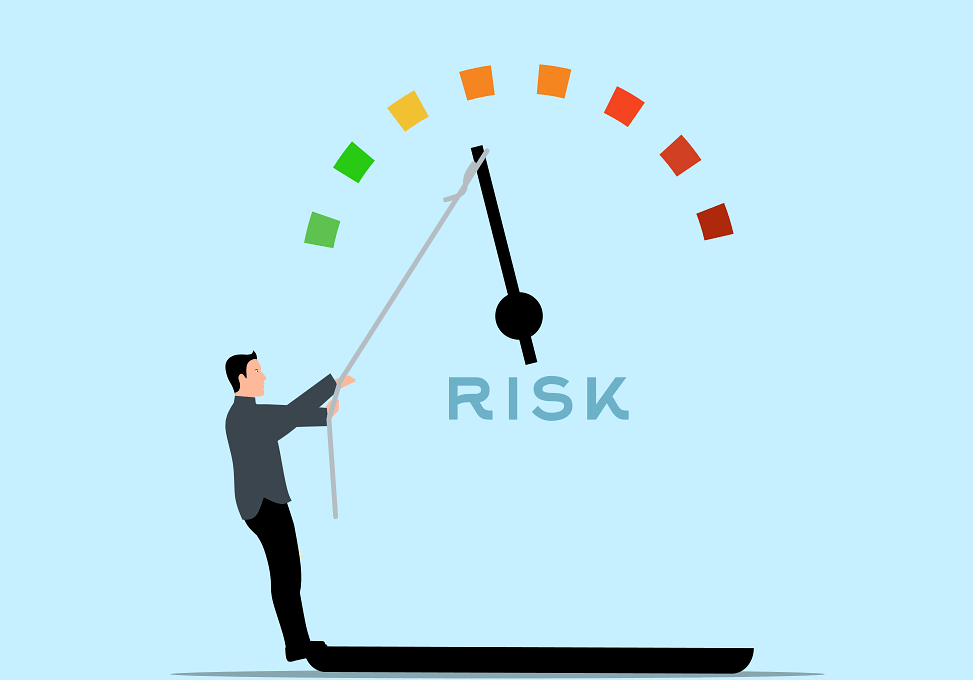FinTech Solutions for Enhancing Supply Chain Risk Management
In today’s globalized economy, effective supply chain risk management is crucial for businesses. FinTech solutions offer innovative ways to enhance risk assessment and mitigation. Traditional risk management practices often rely on static data and manual processes, which may leave gaps in analyzing real-time threats. FinTech platforms leverage advanced technologies such as artificial intelligence and machine learning algorithms to identify potential risks proactively. By processing vast amounts of data rapidly, these solutions can spot trends that might indicate future disruptions. They provide businesses with actionable insights that help them mitigate risks before they escalate. Supply chain stakeholders can not only assess their vulnerabilities but also streamline their response strategies. Moreover, integrating blockchain technology into supply chain finance also enhances transparency and traceability, enabling confidence in transactions. With better visibility, companies become agile, adapting quickly to changes in risk profiles. Furthermore, working capital optimization through FinTech provides liquidity while ensuring compliance with financial regulations. Ultimately, a proactive approach using FinTech tools leads to improved resilience and sustainability in supply chain operations, supporting long-term success.
Understanding the various risk factors faced by supply chains is vital for businesses aiming to thrive. Supply chain risks can be categorized into qualitative and quantitative factors. Qualitative risks involve aspects like political instability and regulatory changes that create uncertainty. In contrast, quantitative risks can be assessed through data, allowing businesses to estimate losses more accurately. FinTech solutions, including big data analytics, allow companies to analyze both types of risks effectively. Combining these insights is vital, as it enables decision-makers to implement risk mitigation strategies grounded on reliable information. For instance, predictive analytics can help organizations forecast demand fluctuations that may disrupt supply chains. Additionally, machine learning models can assess historical trends, providing significant insights into the likelihood of future disruptions. Moreover, FinTech tools facilitate real-time communication and collaboration among stakeholders, ensuring swift responses to emerging challenges. This holistic approach fundamentally changes how businesses view risk management, turning it from a reactive process into a strategic advantage. Consequently, organizations can improve customer satisfaction while optimizing logistical efficiency. Embracing these new technologies will ultimately lead to enhanced relationships with suppliers and customers alike.
Importance of Data in Risk Management
Data plays a vital role in enhancing supply chain risk management through FinTech solutions. Effective risk management relies on timely and accurate data to make informed decisions. Traditional methods often fall short in providing dynamic and comprehensive insights. FinTech innovations enable organizations to gather IoT data, which provides a continuous stream of information regarding inventory levels, transportation conditions, and supplier performance. By incorporating this real-time data into risk assessment models, businesses can better understand potential vulnerabilities within their supply chains. Advanced analytics solutions allow stakeholders to conduct what-if analyses, predicting the outcomes of various risk scenarios. For example, if a supplier experiences a disruption, organizations can determine alternative sourcing options quickly. Furthermore, having access to rich datasets also enhances the probability of optimizing inventory management. With reduced excess inventory levels, companies can lower carrying costs while maintaining efficient supply chains. Additionally, FinTech applications promote collaboration by sharing crucial data with suppliers and stakeholders, creating a more resilient supply chain. Ultimately, leveraging data empowers organizations to develop effective risk reduction strategies, ensuring continuity even amid uncertainties.
As businesses evolve, regulatory compliance emerges as a significant aspect of supply chain risk management. Compliance with local and international regulations can pose vast challenges for organizations in their supply chains. FinTech solutions can assist in navigating these complexities by automating reporting processes and managing documentation. They ensure that businesses maintain compliance with financial regulations while mitigating risks linked to penalties. Additionally, an integrated compliance management system within FinTech platforms provides organizations with timely updates on changing regulations. This real-time information helps businesses remain agile and responsive to directives across jurisdictions. Furthermore, risk management systems can monitor supplier compliance by tracking their financial health and operational performance. This proactive approach is critical as financially unstable suppliers can create significant disruptions. Continuous monitoring of suppliers through predictive analytics enhances risk mitigation efforts and improves overall supply chain visibility. Companies can develop stronger partnerships with compliant suppliers, which enhances resilience. As organizations navigate the complexities of global trade, compliance risks must be thoroughly understood. Thus, investing in FinTech solutions plays a crucial role in supporting effective supply chain risk management frameworks.
Enhancing Collaboration with Blockchain
Blockchain technology holds immense potential for enhancing collaboration within supply chain risk management. This decentralized approach allows for secure and transparent transactions among supply chain partners. Using blockchain, businesses can verify the authenticity of documents and transactions in real-time. This heightened transparency reduces the risk of fraud and enhances trust across the supply chain ecosystem. Moreover, smart contracts created through blockchain technology automate key processes, streamlining transaction management while reducing administrative burdens. Through pre-defined rules, stakeholders can mitigate risks associated with disputes and misunderstandings. Enhanced visibility into each stage of the supply chain fosters stronger partnerships among organizations. Additionally, blockchain provides an immutable record of transactions, which is crucial for compliance verification and audits. Companies using blockchain effectively can reduce lead times and optimize inventory management, ultimately leading to cost savings. By embracing blockchain technology, organizations can transform their supply chain dynamics while ensuring that all parties adhere to standards. Therefore, the integration of FinTech solutions powered by blockchain proves essential for businesses looking to elevate their risk management capabilities further. Enhanced collaboration through blockchain ultimately leads to a more resilient supply chain.
Real-time monitoring of supply chain risks allows for proactive management, which is essential in today’s fast-paced business environment. FinTech solutions focused on risk management provide stakeholders with dashboards that visualize data and highlight potential disruptions. These dashboards integrate data from various sources, such as logistics tracking, demand forecasting, and financial reporting. Real-time alerts ensure decision-makers can respond quickly to any emerging issues, preventing significant disruptions before they escalate. Such insights empower companies to manage their supply chain proactively, considering external factors like fluctuating demand or geopolitical events. Moreover, implementing these solutions can lead to more insightful and strategic inventory management decisions. By understanding real-time stock levels and supplier capacities, businesses can maintain optimal inventory levels while meeting customer demands promptly. Additionally, developing contingency plans becomes more manageable when organizations can anticipate potential disruptions early on. Regularly integrating real-time data into risk assessments is critical in fortifying supply chains. While risks cannot be entirely eliminated, incorporating FinTech solutions mitigates their impact. This proactive approach ultimately positions businesses favorably in a competitive market while enhancing customer satisfaction through reliable supply chain operations.
The Future of FinTech in Supply Chain Risk Management
The future of FinTech solutions in supply chain risk management appears promising as technology continues to evolve. Emerging technologies such as AI, machine learning, and blockchain are already reshaping traditional frameworks. As businesses increasingly recognize the importance of agility, more advanced predictive models will evolve, allowing stakeholders to anticipate risks better. Furthermore, as FinTech companies innovate, we can expect to see more tailored solutions designed for specific industries. These custom applications will ensure that unique sector-specific challenges are met with innovative answers. Additionally, the integration of Internet of Things (IoT) devices will create a new dimension of real-time visibility, fostering seamless connectivity among supply chain players. This transformation promotes sustainable practices by optimizing resource use and minimizing waste. Greater focus on ethical practices and sustainability will likely shape FinTech solutions as consumer demand shifts to favor responsible sourcing. By aligning with these trends, businesses improve their risk management while meeting evolving consumer expectations. Ultimately, a future embedded in technology provides organizations the tools to navigate complexity while enhancing resilience in global supply chains.
In summary, FinTech solutions are redefining supply chain risk management by offering innovative tools that enhance visibility, compliance, and collaboration. As businesses increasingly embrace technology, leveraging these solutions is key to achieving resilience in their operations. Companies that proactively assess and mitigate risks can maintain competitive advantages and foster trust among stakeholders. By harnessing the power of data, real-time monitoring, and blockchain, organizations can revolutionize their supply chains. The enhanced insights driven by FinTech applications allow for strategic decision-making, optimizing resource allocation and maintaining customer satisfaction. Successful risk management in the supply chain hinges on embracing a proactive approach, which can be significantly aided by cutting-edge technologies. Thus, as the global landscape continues to evolve, the role of FinTech in supply chain risk management will become even more crucial, driving efficiency and sustainability. By understanding and adopting these solutions, companies can navigate complexities in their supply chains and prepare for future challenges. Ultimately, investing in FinTech systems will enhance operational effectiveness, majorly transforming risk management practices within organizations.








